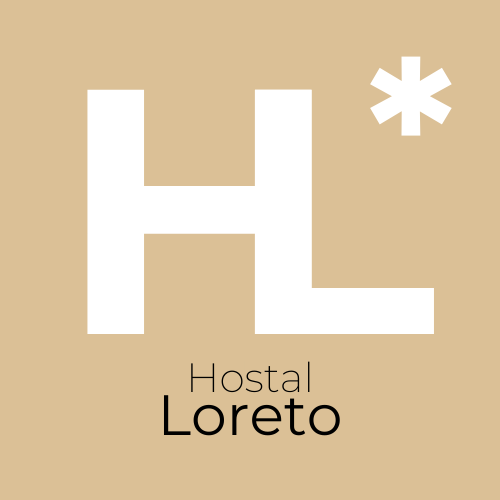Local Fiestas
Dénia is well known for it´s many, many festivities. Almost every week there is something to celebrate, all year long. Not only the nationwide Spanish festivities such as The Three Kings and Easter are celebrated abundantly, there are also loads of local festivities. The main fiestas are the Moors and the Christians, La Festa Major and Las Fallas. During the main festivities, Hostal Loreto is quickly fully booked. In case you want to visit Dénia, call or email us to make sure you won´t miss having your room in the city centre!
La Festa Major

Dénia’s main fiesta is La Festa Major (The big feast). Held in honour of the Santísima Sangre, the Holy Blood it is known in Spanish as the Bous a la Mar Festa. It has been declared as being of National Tourist Interest, and includes many bull oriented events as well as concerts, parades and fireworks. Every year La Festa Major is celebrated a full week during the second week of July. With so much going on, we highlighted the main features for you:
- Els Bous a la Mar (Bulls into the Sea) Bous a la Mar is declared a National Touristic Interest Fiesta. Twice a day the local people get chased by a bull and try to get it into the sea. The chase starts at Calle Marqués de Campo and they try to get the bull into the water at the esplanade of the port.
- Las Carrozas (Parade Floats) This amazing parade consists of bands and music, followed by artistic and creative floats. A real must see! The Parade is held the last Saturday of the fiesta in Calle Marqués de Campo. The participants of the parade can win prizes such as a prize for best float and best kids float.
- Fireworks The Spanish absolutely love their fireworks! La Festa Major ends slightly after midnight with an impressive firework display along the Esplanada Torrecremada.
Moors and Christians

Another huge event in Dénia is the Moors and Christians festival. This festival has been celebrated since the 16th century. Celebrated is the Christians taking Spain from the Moors back in the 13th century. The patron saint of Dénia, Sant Roc, is honoured as part of the festival. During this festival you’ll find the streets beautifully decorated with lights and don’t be surprised if you’re having a drink with a bunch of knights sitting next to you. The costumes and makeup of the group members of the Moors and Christians are quite impressive. Each year, the groups compete against each other for the best costumes and parade floats. Highlights Moors and Christians festival: To kick the event of, there is a reenactment that the Moors arrive by boat along the beach. Part of the scene is that a peace treaty is attempted to be signed, but fighting breaks out and a battle starts. On the second day there is a children´s parade float and the third day is the Day of the Fiesta with the impressive adult´s Gala Parade. All the groups participate and show off their amazing costumes and weapons. There’s people on horseback, pirates towing prisoners, dancers, reenacting fights and a lot of loud gunpowder blasts. The last day of the festival is also a day with an extensive program, but the highlights are the Surrendering and Retreat and of course, fireworks to close the event.
Las Fallas

Las Fallas (The Bonfire Festival) is a big thing in the Valencian Community. This festivity is declared by the Spanish state as one of the Festivals of International Tourist Interest and is included in the Representative List of the Intangible Cultural Heritage of Humanity by UNESCO in 2016. Not only in the capital Valencia the Fallas are celebrated greatly, in Dénia they do it no less superior. The streets are flooded with colour, on the squares you´ll find the impressive monuments the locals have worked on all year, there´s music bands performing in the streets, lots of firecrackers, lunches and popular dinners, the floral offering parade to the Virgin of the Forsaken and of course, the big bonfires at the end of the fiesta. Events during Las Fallas:
- La Plantada: Placing the fallero monuments in the different discricts.
- La Mascletá: (firecrackers): A large number of rockets are fired in each Fallero District, at approximately 14:30h filling the city with noise and gunpowder.
- El Pasacalles: Falleros walk the streets dancing with the band or their neighbourhood.
- The Floral Offering to the Virgin of the Forsaken: One of the main acts, where the falleros dress in their best costumes and head in procession towards the Virgin with the bouquets of flowers, which they put in her mantle.
- La Cremá: The fallas are burned to end the Fiesta. First the children´s fallas are burned and later on the fallas of the adults.
Easter

Easter in Spain starts with la Semana Santa (the Holy Week), the weekend before Easter. La Semana Santa is celebrated nationwide. In some cities however it is celebrated more extensive. Cities in the south of Spain are well known for their way of celebrating Easter, but Dénia is also worth a trip during the Semana Santa. The processions which are performed by the Catholic religious brotherhoods and fraternities are quite impressive. The statues they carry are immense and a spectacle to look at, especially the ones in the evening with all the candle lights. The processions are being held on Holy Thursday, Holy Friday and Easter Sunday.
[/vc_column_text][/vc_column][/vc_row]